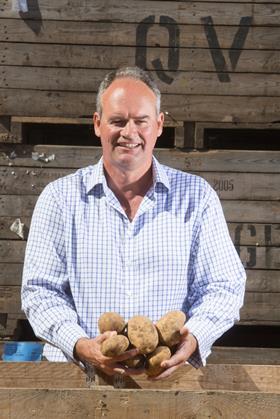
A sustainable environment is one of the Worth family’s key values. AH Worth is a fourth-generation family business based in Holbeach Marsh, south Lincolnshire. We farm over 5,000 acres in the local area under the name Worth Farms, but our bigger business is QV Foods, packing vegetables (mainly potatoes) for many customers, from retail through to foodservice, wholesalers and food manufacturers.
It appears to us that the climate is changing, with a greater proportion of our precipitation coming in short sharp bursts. Thus it is imperative that we not only look after the environment that we live in and preserve our natural resources, but also adapt to these weather changes. Extreme weather events are becoming more common and we need to ensure that we invest in areas such as water storage and distribution, so as not to lose these vital resources.
We were the first intensive arable LEAF (Linking environment and Farming) Demonstration Farm in 1997. We have had thousands of visitors over the years to see how commercial farming and the environment can work well together. This sympathetic farming is the way forward and needs to be promoted by the industry. The LEAF Marque is a standard that should carry significant weight for the NGOs, the government, and most importantly, the consumer.
It is not just the farming environment that is important, it is also preserving our natural resources. In Holbeach Marsh we live on the end of the line for most things, but utilities are particularly scarce. We are short of electricity, water and of course we do not have mains sewage. In 2000, we spent over £1 million in two tranches on a waste water treatment plant.
This capital was used to clean the water to a level at which it could be discharged within EA consent limits, as well as reusing the water in the factories. Half of our daily use of water on site is recycled water, which is a saving of around 58,000 tonnes a year.
But we were still discharging around 100 cubic metres (equal to 100 tonnes) of water a day to the local drainage system. In 2012 we invested £500,000 in further water treatment systems, reservoirs and associated underground mains. The quality of the water from the waste water treatment plant is of a standard that we can use to irrigate our crops. We are now putting this water into our reservoirs to primarily water our potato crops, which are destined for our site here at Holbeach. We also have a 1.5MW anaerobic digestion plant on our site. This facility, along with 250kw of solar panels, supplies 90 per cent of our electrical needs to site, saving 3,400t of carbon dioxide a year. This is an example of the whole production process working sympathetically with the environment.



